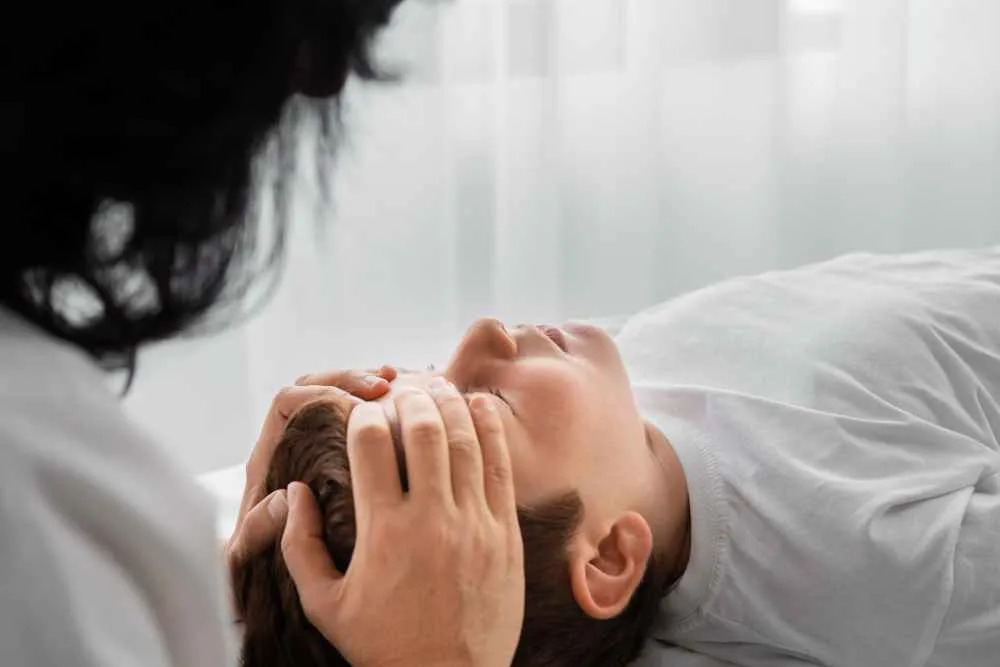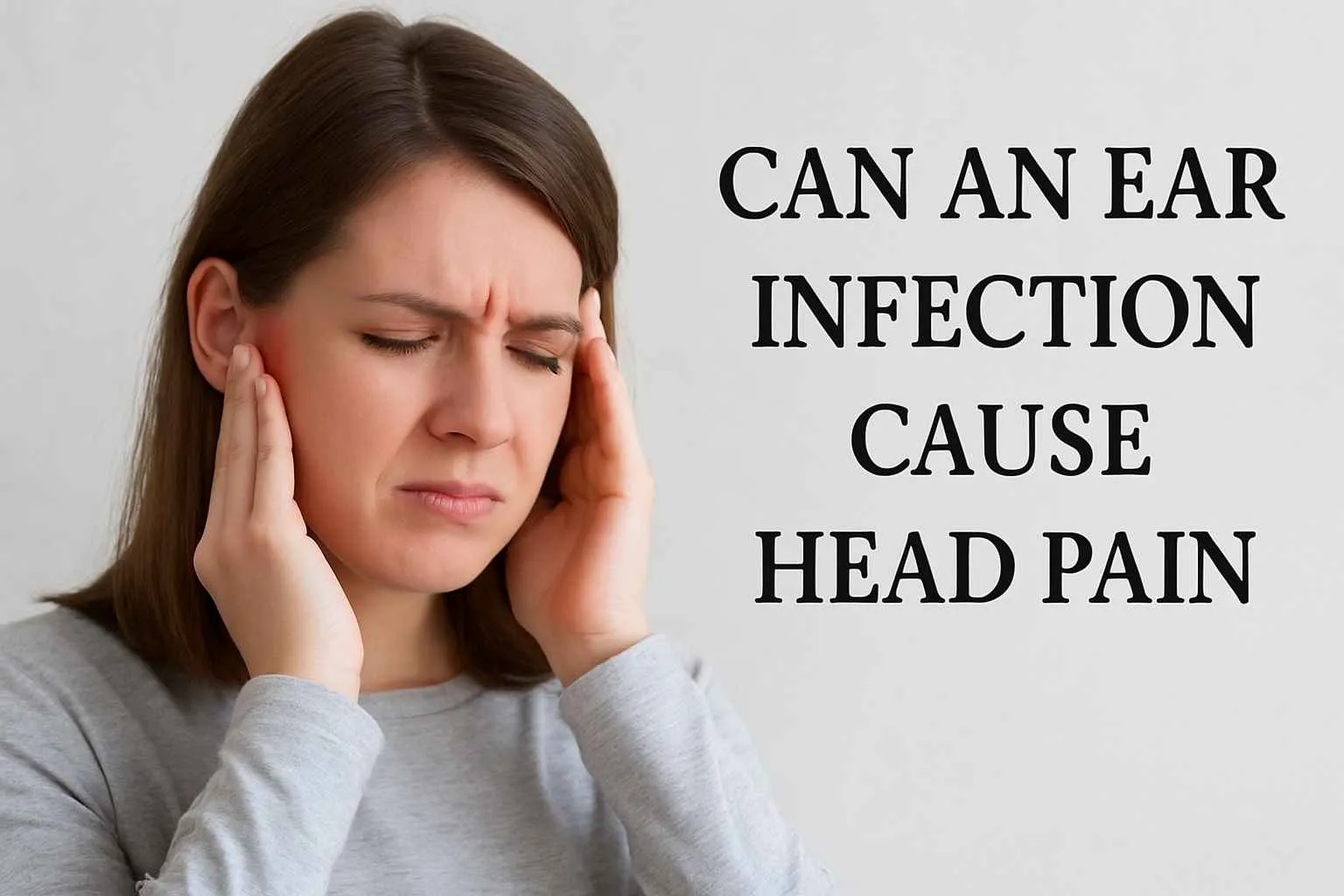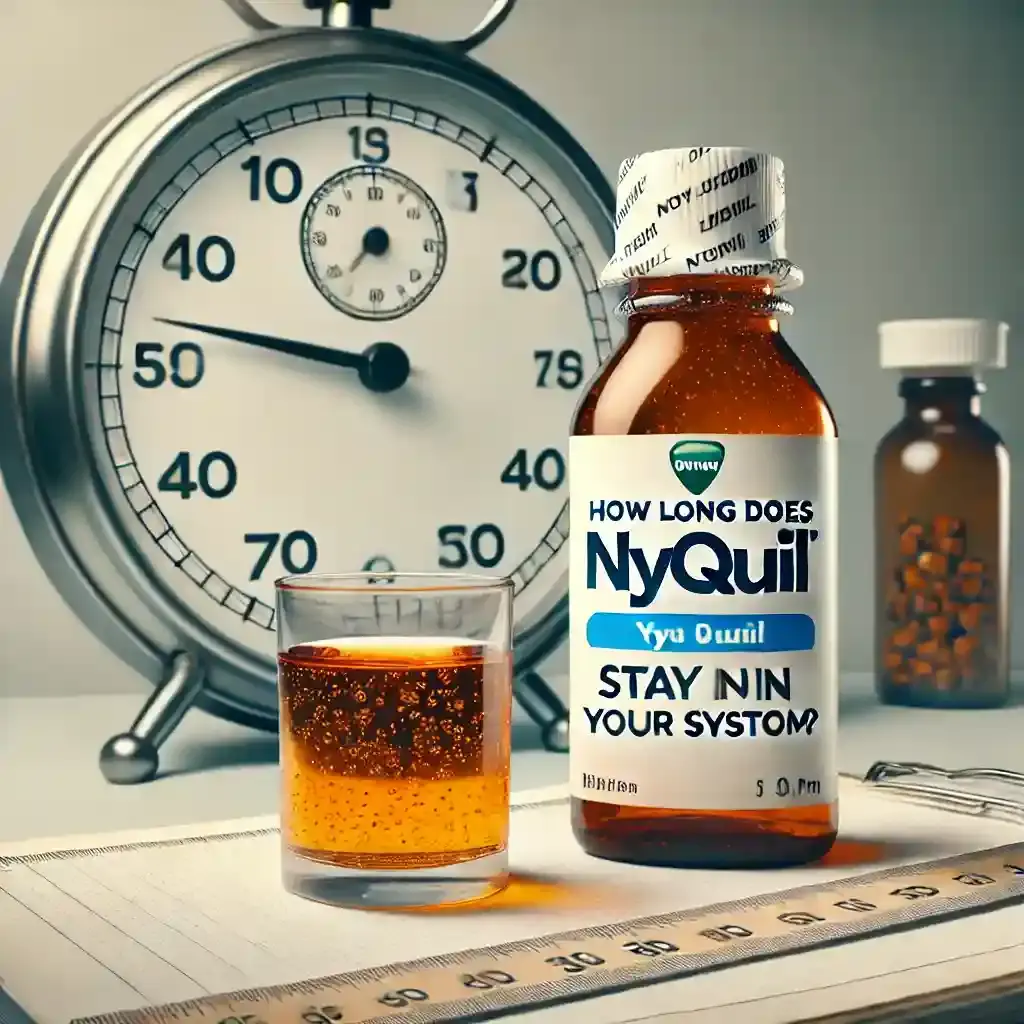|
Cough headaches often result from sudden pressure changes. Most are harmless, but some link to underlying issues. Recognizing causes, relief methods, and warning signs helps manage pain effectively. |
Why Does My Head Hurt When I Cough?
When you cough, pressure builds in your chest and neck, and that force can travel upward, squeezing blood vessels and tissues in your head. This sudden spike in pressure is what often causes a headache.
Doctors classify these headaches into two main types:
-
Primary cough headache: Directly caused by coughing, usually short-lived and harmless.
-
Secondary cough headache: Signals an underlying issue, such as fluid changes, structural problems in the brain, or other medical conditions. Paying attention to warning signs is important.
Causes of Headaches Triggered by Coughing
Cough headaches can feel different depending on their cause. Some are brief and sharp, while others linger as dull aches. Understanding the triggers can help you know what’s safe and when to seek medical advice.
1. Sinus Pressure or Infections
When your sinuses fill with mucus, air can’t move freely. Coughing adds force to the trapped air and causes pressure pain behind your eyes, forehead, or cheeks. It worsens when bending forward or lying flat.
2. Migraine Triggered by Coughing
People with migraine know that even small triggers hurt. Coughing increases strain in neck and head muscles, making the existing pain sharper. The pain may stay longer, sometimes for hours. You may also feel sensitivity to light or sound.
3. Tension Headache from Muscle Strain
Long hours at a desk or stress stiffen shoulder and neck muscles. When you cough, the sudden jerk tightens them further, giving a dull, band-like pain around your head. Simple stretches, gentle massage, or short breaks help reduce it.
4. Serious Underlying Conditions
Not all headaches from coughing are safe to ignore. About 40 % of diagnosed cough-related headaches come from deeper issues.
-
Chiari malformation headache – brain tissue pushes down toward the spine.
-
Intracranial pressure headache – extra fluid builds inside the brain.
-
Brain aneurysm headache – severe, sudden pain.
-
Cerebrospinal fluid leak headache (CSF leak) – pain worsens when standing.
-
Tumours or growths – constant pressure that doesn’t fade.
If your pain is strong, sudden, or includes dizziness or vision changes, consult your doctor soon.
Quick Comparison of Cough Headache Types
| Cause | Typical Signs | Severity |
|---|---|---|
| Sinus headache | Facial pressure, nasal congestion | Mild |
| Migraine triggered by coughing | Throbbing, light sensitivity | Moderate |
| Tension headache | Band-like tightness, stress-related | Mild |
| Secondary cough headache | Sharp, lasting pain, vision/balance changes | Serious |
What Exactly Is a Cough Headache?
Every cough or sneeze creates a wave of pressure. This is called intrathoracic pressure, and it briefly travels upward. When that wave hits blood vessels inside your head, the pressure builds again, which experts call intracranial pressure.
Doctors divide cough headaches into two clear types:
-
Primary cough headache: Happens directly because of coughing. It’s short, sharp, and harmless.
-
Secondary cough headache: Linked to another issue such as high brain pressure, sinus blockage, or Chiari malformation.
A review found that headaches caused by coughing, sneezing, or straining occur due to a sudden rise in intra-abdominal, intrathoracic, and intracranial pressure. That one line explains the full picture: your body pushes from below, your brain reacts above.
Warning Signs – When to See a Doctor
A headache when coughing should get attention when:
-
Pain starts suddenly and feels stronger than ever before.
-
You see double or blurry vision right after coughing.
-
There’s ringing in the ears, dizziness, or faint spells.
-
Headache lasts more than a few minutes each time.
-
Pain increases while sneezing, laughing, or bending forward.
Doctors may recommend MRI or CT scans to rule out hidden causes. In rare cases, a spinal tap checks fluid pressure. If you live in the US, a neurologist visit or a scan is often covered by insurance when persistent cough headaches are documented.
How to Stop Head Pain When Coughing
Relief depends on why your head hurts. Try these step-by-step methods.
1. Home Remedies
Mild headaches respond well to simple steps.
-
Drink water throughout the day
-
Run a humidifier if the air is dry
-
Place a warm compress on your face for sinus relief
-
Try over-the-counter options like naproxen sodium
2. Medical Treatment
For repeated or severe headaches, doctors may suggest preventive medications.
-
Indomethacin for primary cough headache
-
Propranolol to ease blood vessel tension
-
Acetazolamide to reduce spinal fluid
-
Surgery for cases where structural issues are the cause
3. Lifestyle Adjustments
Daily routines often add to strain. Small shifts help.
-
Quit smoking and avoid dusty rooms
-
Treat allergies, asthma, or reflux quickly
-
Fix posture during long work hours
-
Don’t live with a chronic cough—find and treat the source
4. Supportive Relief
Some people find relief outside of medication.
-
Gentle yoga or stretching
-
Steam inhalation for sinus pressure
-
Herbal teas to calm the cough reflex
-
Breathing practices to reduce chest pressure
Prevention: How to Reduce Headaches from Coughing
A headache when coughing often comes down to triggers you can manage. Small habits don’t stop every attack, but they cut the odds and make flare-ups less frustrating.
1. Respiratory Care
Breathing problems push these headaches along, so looking after your lungs and sinuses is step one.
-
Flu shots each year to cut down on infections
-
Treat asthma, colds, or bronchitis without delay
-
Stay away from smoke, dust, and allergy triggers
2. Lowering Strain
Sometimes the pressure isn’t in your head, it’s in your body’s effort. Taking the load off helps prevent pain in the head when coughing.
-
Use stool softeners if straining is common
-
Break up heavy lifting or ask for help
-
Rest between long chores that need bending
3. Everyday Habits
Daily routines matter more than most people realize. They’re simple, but they stop repeated cycles of headaches when coughing or sneezing.
-
Keep water nearby and sip often
-
Sleep slightly propped up instead of flat
-
Move your body every day with walking or light exercise
4. Regular Doctor Visits
Even with prevention, you might still wonder, What does it mean when your head hurts when you cough? That’s when checkups matter. They keep track of changes before problems grow.
Conclusion
A headache when you cough can feel alarming, but in most cases, it’s harmless. If you’re wondering why does my head hurts when I cough, it could be due to temporary muscle strain, pressure from persistent coughing, or minor throat and sinus issues. Simple steps like staying hydrated, coughing gently while sitting upright, and practicing proper breathing can help reduce discomfort. However, if the pain is frequent, severe, or accompanied by other unusual symptoms, track your patterns and consult a doctor. Relief is easier when the cause is clear, and early attention can prevent complications.
Frequently Asked Questions
Can a sinus infection cause head pain after coughing?
Yes. Blocked sinuses trap mucus, and a strong cough pushes pressure into those cavities. Pain spreads across the cheeks, forehead, and eyes, often worse when leaning forward.
Are cough headaches dangerous?
Usually not. But if your pain stays longer, gets stronger, or comes with balance or vision issues, it could mean a secondary cough headache needing medical tests.
How long do cough headaches last?
Most last seconds to minutes. In some people, especially with sinus or migraine links, the pain can stretch to an hour or two before easing.
Why does my head hurt when I cough or sneeze at night?
Night coughing often comes from postnasal drip or acid reflux. Lying flat makes the pressure worse, leading to a throbbing headache when coughing or sneezing.
How can I treat cough headaches naturally?
Stay hydrated, inhale steam, and use warm compresses. Rest your eyes and neck. If nothing helps after a week, book an appointment for cough headache treatment advice.
-User-1754380331.png)
Reviewed by







